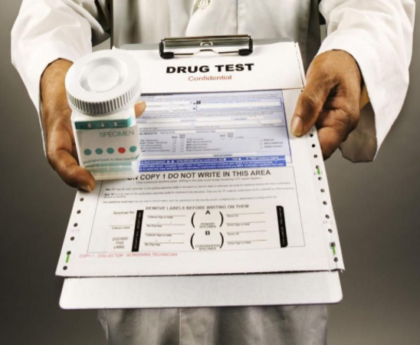Road safety is a critical issue that impacts drivers, passengers, and pedestrians. Improving road safety can save lives, reduce costs, and improve productivity.
DOT regulations require all safety-sensitive transportation employees (including truckers) to undergo physicals and drug tests. However, many medical conditions prevent drivers from passing their DOT physicals.
Increased Visibility
Road traffic injuries are among the leading causes of death in the world. The consequences of this phenomenon have far-reaching health and socio-economic implications for society as a whole. To improve road safety, there needs to be a commitment from all stakeholders: governments, private entities; and local communities should work together to develop and implement effective interventions that will help prevent accidents and injury.
DOT physical drug test is one such intervention that can play an important; role in improving road safety by helping to ensure that drivers are on the job when they should be.
As part of the DOT physical exam; a medical examiner will review an individual’s medical history and ask questions about their current medications. This is because many drugs have side effects that may disqualify someone from driving, such as those related to diabetes, heart disease, neurological conditions, and mental health disorders. The examiner will also want to know about any recent surgeries.
The medical examiner will then run a standard urine screen; which typically DOT physical drug test screens for marijuana, cocaine, opiates, phencyclidine, and amphetamines/methamphetamines. If the result is positive, the driver must undergo a confirmation test, usually done with gas chromatography/mass spectrometry.
Reduced Risk of Accidents
DOT drug tests are essential to protecting the safety of drivers, passengers, and other motorists. These tests ensure that commercial drivers are not under the influence of drugs or alcohol and can safely operate their vehicles. This helps create a safer work environment and protects employers from legal liability if a driver is under the influence of drugs or alcohol.
The DOT requires all commercial motor vehicle drivers to pass a DOT physical. This includes trucking carriers, bus companies, and other organizations that rely on CDL drivers to transport cargo or passengers. Urine drug screening is also a key part of a DOT physical and can be performed at urgent care clinics that offer these exams. The DOT urine drug test typically screens for cocaine, marijuana, opiates, and amphetamines/methamphetamines.
During the DOT physical, medical examiners will discuss your prescription medications. This includes medications for diabetes, DOT physical drug test heart disease; neurological and mental health conditions, or any other health condition that could impact your ability to drive. You must bring all your current prescriptions and medical documentation verifying any health conditions disqualifying you from driving. The medical examiner will then review your current medications to DOT physical drug test determine whether they are DOT physical drug test safe for driving while taking them.
Enhanced Confidence
When you feel confident that your driving skills are good, you can focus more on the road ahead. This helps you stay alert to any changes in conditions and slow-moving traffic. It also means that you’ll be able to adjust your driving style as necessary – DOT physical drug test from rural roads where you need to watch out for wildlife to highways where it is important to merge safely and keep an eye on speed limits.
During a standard DOT physical, the medical examiner will perform a urinalysis. However, this isn’t used to screen for drug use. In most cases, the medical examiner will ask you to list any medications you take and whether they have side effects that could interfere with your driving ability. DOT physical drug test This includes prescribed drugs that treat diabetes, heart disease, neurological or mental health conditions, and some recent surgeries. It is also important to report any herbal supplements or vitamins you take.
If you’re a CMV driver who needs to regularly pass a DOT physical, Choose an experienced and certified provider.
Increased Productivity
Spending many hours in the same seat can be exhausting for drivers, DOT physical drug test who must have the energy to perform their duties safely. Regular DOT physical helps ensure truckers are physically fit to operate CMVs and keep the public safe.
A DOT physical usually includes a urinalysis, which looks for proteins and sugar in the urine. While the exam doesn’t DOT physical drug test specifically screen for drugs, it’s common for medical examiners to ask about any medications you take, including those that treat diabetes, DOT physical drug test heart disease, neurological and mental health conditions, or other issues that could interfere with your ability to drive.
Drug tests also look for five categories of drugs: DOT physical drug test marijuana, cocaine, opiates, amphetamines, and methamphetamines. If you are diagnosed with any of these health conditions, the DOT may disqualify you from driving until you get it under control, but in most cases, the condition will only prevent you from working as a truck driver for a short time. DOT drug tests are an integral part of efforts to enhance road safety. By identifying and deterring substance abuse among employees in safety-sensitive positions, DOT physical drug test these tests contribute significantly to creating a safer transportation system for everyone.




